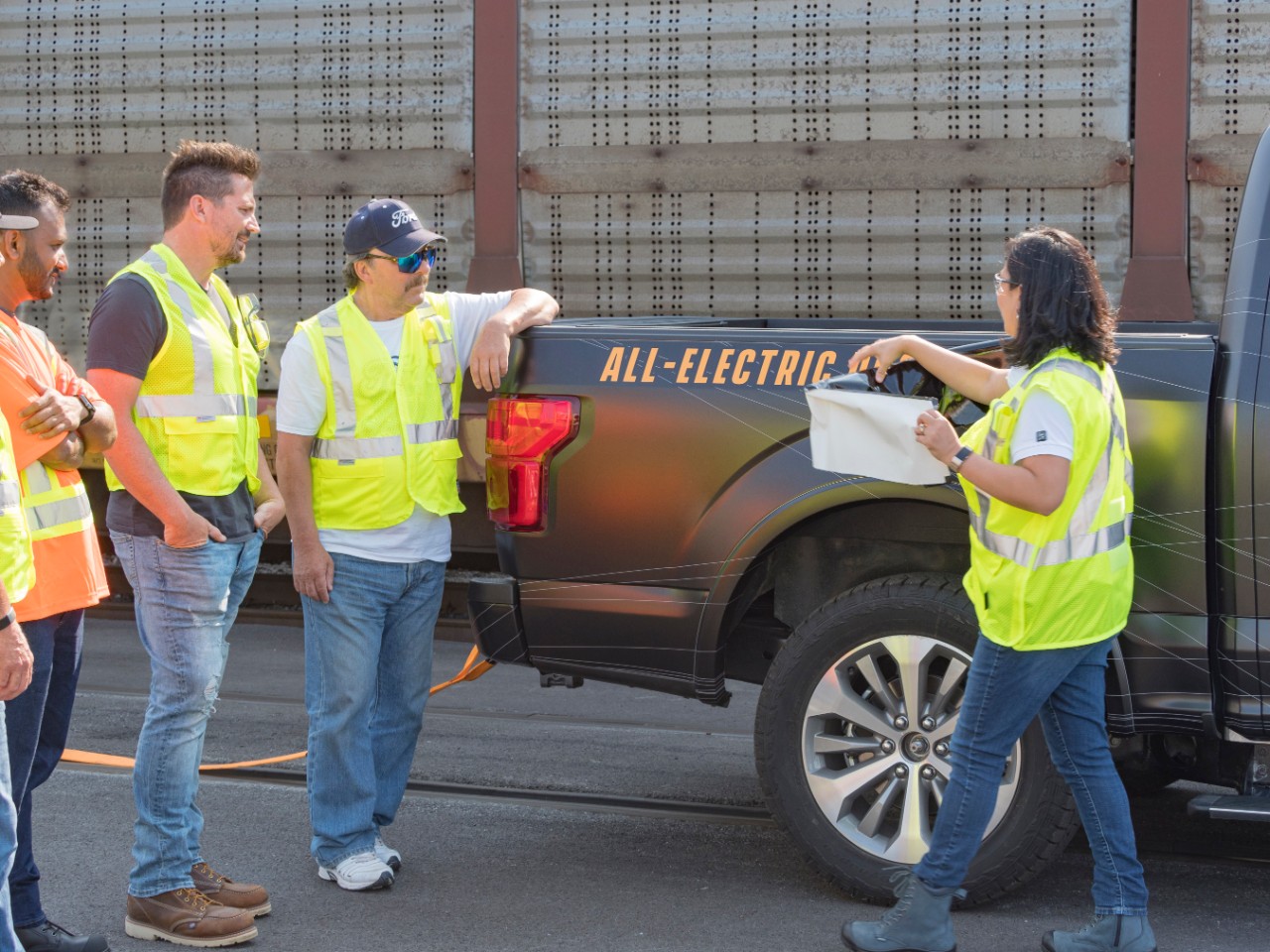With Tesla set to unveil its electric entry into the full-size truck market on Thursday, there’s a lot of buzz about the future of pickups. Ram, Chevy, and Ford have been making it clear that full-electric is on the way for them, too, but they’ll let Elon Musk be the Guinea Pig.
While the American passenger car market also has its eyes firmly fixed on electric, leapfrogging the still niche Hybrid technology. I’m left wondering why a Hybrid truck hasn’t entered the market yet.
Hybrids would seem the perfect fit for anyone looking to tow or haul heavy loads from time to time while sipping fuel when unloaded. Imagine zipping around town (or national parks) with the fuel mileage offered by an electric motor coupled with the power and range of a combustion engine for towing your trailer. It seems tailor-made for the complexities the modern pickup handles.
Hybrids have been a part of the passenger car segment for 20 years now, but it wasn’t until 2019 that a big Truck brand would dip their toes in the water. Ram offered a “mild-hybrid” for 2019 that uses electric power to assist, but the engine never cuts out in favor of full-electric mode. Basically, it’s an electric assist that allows the engine to cut out when you stop the vehicle, saving about 50 gallons a year for the average consumer.
Ram and GMC/Chevy seem committed to an all-electric half-ton truck by the 2022 model year, perhaps not even attempting a real hybrid. But Ford has other plans.
The blue oval famously announced earlier this year that it would no longer sell passenger cars in North America, save for the Mustang. Ford brass says that trucks and SUVs are what Americans want, and are what they will provide. But Ford is doing something else a bit different than their competitors — they’re going all-in on hybrids. Next year, every vehicle in Ford’s revamped line-up will offer a hybrid powertrain, including the best-selling F-150.
It won’t just be a fuel sipper. Ford will focus on capability for the F-150 Hybrid, such as the low-end torque for extra pulling power. They even plan to tool it to serve as a mobile generator.
“Hybrids for years have been mostly niche products but are now on the cusp of a mainstream breakout,” Jim Farley, Ford president, Global Markets said. “The valuable capability they offer – plus fuel efficiency – is why we’re going to offer hybrid variants of our most popular and high-volume vehicles, allowing our loyal, passionate customers to become advocates for the technology.”
Ford’s new hybrid system is designed to be more efficient and less expensive than previous generations. Ford is intent on lowering cost of ownership for customers by leveraging its full line-up. Vehicles will use mostly the same components, so the cost of the supply chain should be reduced. In essence, Ford is streamlining manufacturing for a generation of vehicles to bridge the gap to the all-electric vehicles that will blanket the roads in the next 20 years, whether you’re a fan or not.
As Tesla barrels full-force into the unknown, truck owners are probably a little more pragmatic on the whole. Dependability and capability sell. The strides half-ton manufacturers have made in tow and payload capacity, combined with a rugged, next-generation hybrid power train, may make the model year 2021 F-150 the truck to save up for.







